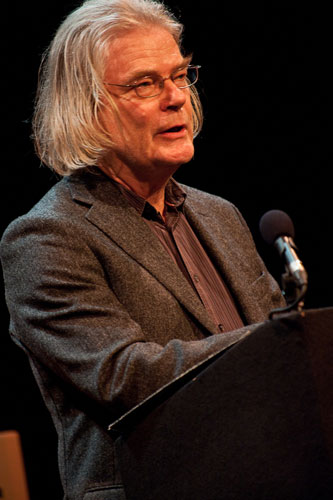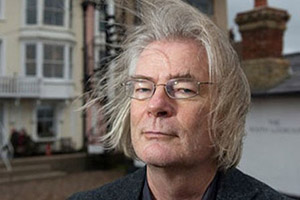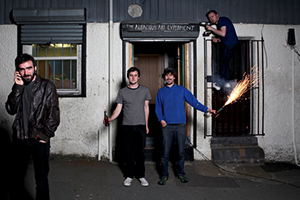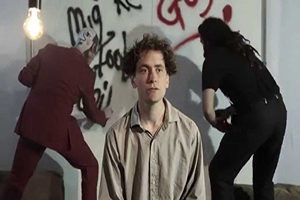
Maurice Riordan was born in Lisgoold, County Cork and after spells in Ontario and Barcelona he settled in London where he is now editor of the Poetry Review. He has had several collections of poetry published, most recently The Water Stealer (Faber & Faber, 2013). Here he talks to Al McClimens about poetry, teaching poetry and teaching poetry in Sheffield.
Maurice, if we can start with a little bit of background…you were born and raised in rural County Cork and are now, among other things, a published poet, translator, editor and Professor of Poetry at Sheffield Hallam University. Where did it all go wrong?
I was teaching creative writing in London at Imperial College and when I saw the advert I was aware of the MA course in Sheffield because it does have a national reputation and I thought it might be worth applying for. I also have a family connection here as my son was studying at the University of Sheffield at the time so that tied in nicely. So I’ve been working in Sheffield since 2007 and my tenure goes on.
Do you ever compare notes with Professor Armitage in University of Sheffield ?
We do have some chat. I’ve met Simon a few times and we’re good friends. But he leads a very busy life and I’m quite busy too. But we have a laugh when we meet and we do talk about the Sheffield jobs. But beyond my short walk from the station to the campus I don’t have a lot of time to see much else of the town.
So you would find your way home from Fagan’s for example?
It’s all downhill to the station isn’t it?
Well some people say after S.H.U. it’s all downhill…
And we had a Poetry Review launch here in Sheffield last year and that was a big success because Sheffield has an established writing community. And there is Bank Street Arts too. And I had been to Sheffield before to read so I’m not unaware of the city.
But looking at the academic side ….is poetry a discipline that can be taught?
It’s not straightforwardly teachable like mathematics but you can learn about it. I try to impart a lot about it through recommending books and opening doors but with the undergraduates I find you can do a lot to open their imaginations and give them licence to think imaginatively and that can be done successfully. I’ve always believed that. You can guide people along that route but it’s something a person learns for themselves.
And of course it’s important to read a lot and to continue to read. You can’t read too much. But it’s good to be stimulated by new writers and by revisiting old writers. That is one of the things that I find. The pleasure from reading is inexhaustible.
Do your students generally read enough?
The undergraduates no, and that’s partly because of their age. And in terms of poetry they have limited experience in their education. So you have to encourage them to get the books and to read widely. The more ambitious ones will do that anyway.
Who would you recommend that students read?
I would encourage people to read indiscriminately so that they can develop their own taste. But I do like Alice Oswald, Don Paterson Jo Shapcott …but many others too. Older writers, I think everyone should know their Elizabeth Bishop. Robert Frost too. He was an influence for me – Philip Larkin, Ted Hughes. I don’t have a desert island list.
The Water Stealer (Faber & Faber, 2013) was the latest of your publications, are you working on new material now?
I’m at the early stages. I tend to empty out the tank with a book and have a tendency to let my brain rewire. I have a real appetite for writing just now but I don’t have the time.
Do you see yourself more as a writer, teacher, editor or translator?
Those are the day jobs. The poems are the central thing for me. Translation does feed into that. Teaching also eats up the time. But it does keep me in touch with certain poems in an in depth way that wouldn’t be the case otherwise. Editing is a lot of fun. Well, it’s hard work but it’s fun and satisfying. But also there are a lot of much younger poets who are going to be good and they are finding their feet and they are up to something new and that’s one of the by-products.
Do you have anyone in mind?
Of those I would say Emily Berry and Jack Underwood, are people to look out for. They were once my students. And there’s Sam Riviere doing good stuff and there’s Helen Mort here in Sheffield. And actually I will mention someone not many people will know of and that’s James Giddings who is a student here. I would put a small punt on him.
And finally, one for our readers, what advice do you have for aspiring writers?
I think we may have covered that already with reference to reading widely. Nowadays reading is important but I also think that it’s useful to take a university degree. It gives you a discipline and also a kind of commitment. And social media are useful. I personally don’t have the time for Twitter or Facebook but for younger writers that can be a great facilitator and a way to find a community of other writers and to develop a sense of what’s happening elsewhere. That’s a positive.
Interview by Al McClimens



